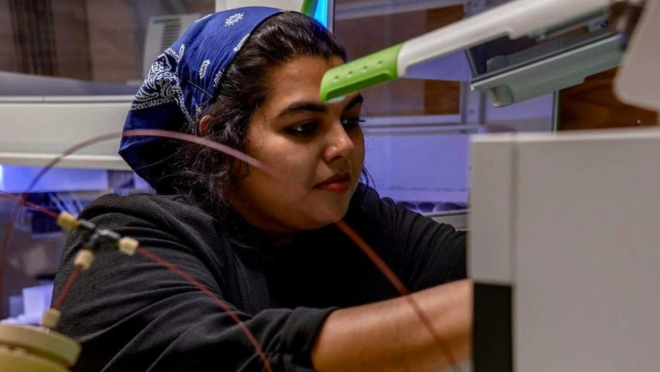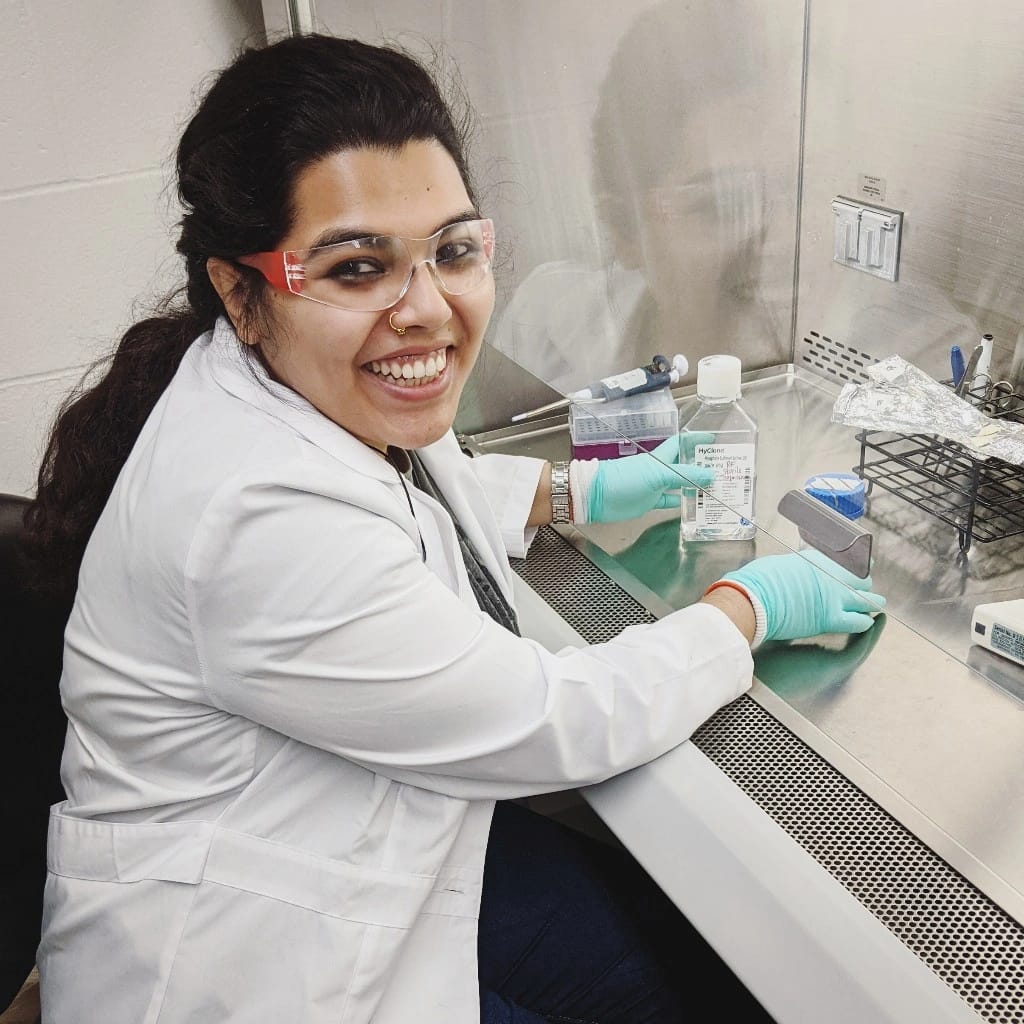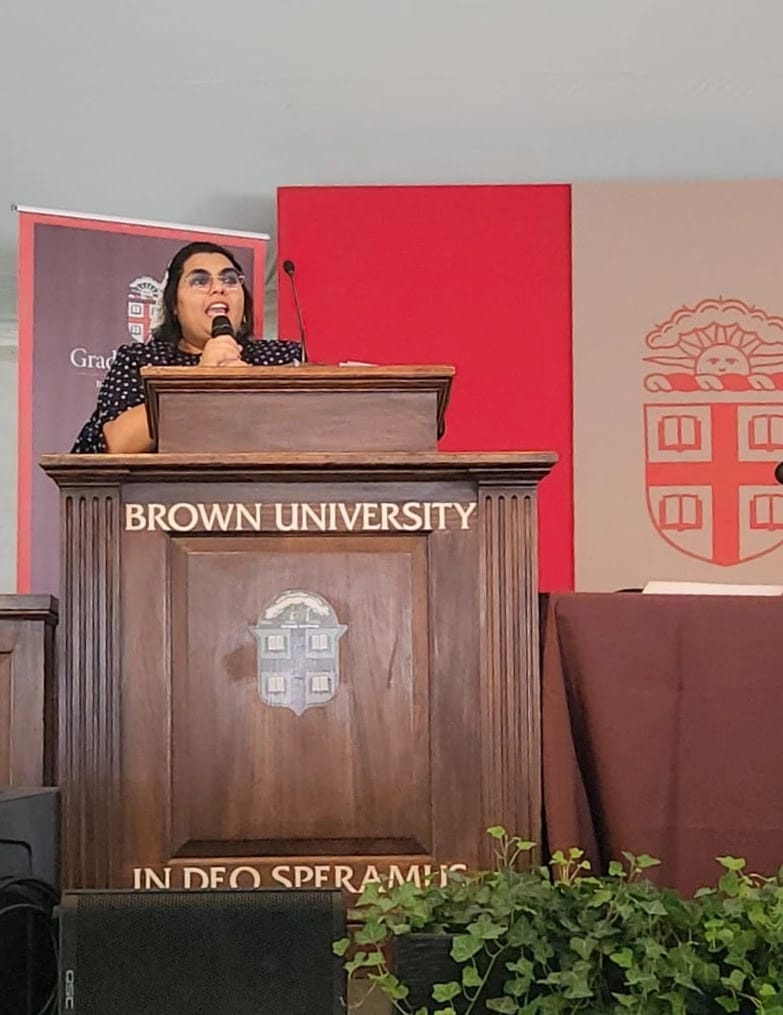Opioids, innovation, and equity: A Bangladeshi scientist’s breakthrough
Opioids, innovation, and equity: A Bangladeshi scientist’s breakthrough

Although Bangladesh’s opioid drug crisis is not significant, the country still deals with other drugs such as heroin, cannabis, ATS and crystal meth. Only in 2022 alone, Dhaka has met with 29.45% of cases, according to the DNC.
As of now the drug testing facilities in Bangladesh are limited, however a conversation with Dr Ramisa Fariha has proved otherwise. Dr Ramisa Fariha, a Bangladeshi scientist, developed a method to test whether any opioid present in a patient’s body is cannabis or heroin or even opioid, by using simple transformative methods with cost-effective equipment that can be practised to bring about improved public health diagnostics.
Beginning of her research with opioids
“My turning point came during a conversation with my mother. I was explaining one of my projects to her when she quietly asked, ‘Is your science only for the privileged?’ That question stayed with me and ultimately shaped my entire research trajectory. It made me deeply question who truly benefits from our scientific innovations. I began exploring how diagnostic technologies could be decentralised—removing barriers related to cost, geography, and infrastructure. That led me to microsampling, a field that focuses on extracting rich diagnostic data from extremely small sample volumes,” Dr Fariha began.

Dr Ramisa Fariha’s academic journey began in Narayanganj where she was born and raised, from there she pursued her bachelor’s at the Pennsylvania State University in Biomedical Engineering. While doing her bachelor’s she joined Penn’s first stem cell engineering lab. Afterwards, she completed her master’s and PhD from Brown University and is currently working as a postdoctoral research associate at Brown’s RNA centre where she came up with the idea of using Dried Blood Spots as a diagnostic method to test drug presence in blood.
“At the MSACL conference—where I received the Young Investigator Award—I was introduced to dried blood spots (DBS), a sample collection method with enormous potential but limited adoption. I realised the biggest obstacle to DBS-based diagnostics was inefficient sample preparation. That problem became my focus,” she added.
Impact of Research
Dr Fariha’s method uses dried blood spots and tests them in order to find traces of substance. As this research was more focused towards the US and the problem with opioid addiction, these dried blood spots were used to test opioids. Nevertheless, this exact method can be used to test the presence of other drugs in patients and even newborns despite the very limited blood supply. Regardless, early detection means early intervention.
Upon further inspection, this method is not only cost-effective but it is accessible, not just in developed labs but also the rural clinics and hospitals of Bangladesh, making it easily accessible to a wider population, reducing the time it takes to test and get results. “My device was built with this kind of model in mind—low-maintenance, highly automatable, and scalable. And these samples can be for both maternal and infant health monitoring,” she explained.

“Additionally, the platform together with the bioanalytical assay was designed to be easily integrated into existing hospital labs without requiring specialised infrastructure. It can be used for both acute detection in infants and longitudinal tracking in individuals undergoing opioid substitution therapy. It fills a crucial diagnostic gap,” Dr Ramisa further said.
For applying her research in Bangladesh, Dr Fariha advised to localise and invest in translational infrastructure.
“To apply this method, doctors and practitioners could transport the samples from under-resourced populations and then process and analyse it with clinical precision, subsequently closing the equity gap in real time. This means that someone in Rajshahi would have access to the same accurate disease diagnosis as someone from Rhode Island,” Dr Fariha remarked when we were discussing how her research could be used to get results in the context of Bangladesh.
Learnings from her journey
Working in STEM or any field is more about impact and the real-world challenges it overcomes, rather than recognition. That is not to say that recognition does not matter, it matters because it opens more doors to opportunities, to solutions of problems. Doesn’t matter what field it is, it is important to keep on pursuing, asking questions and supporting curiosity.
Dr Fariha so kindly shared an experience that remodelled her thinking, “One moment that stays with me was speaking at the Girl Up Bioengineering Summit. When students were asked to name female scientific role models, the room went quiet. That silence broke my heart.” This experience not only motivated her but also deepened her resolve to show up authentically.
In 2024, she was awarded the STAT Wunderkind title (Wunderkind: wonderkid—the next scientific superstar), featured by the Boston Globe, where she recounts that it was not just an honour but that representation of scientists, pioneers or even thinkers matters a lot.


